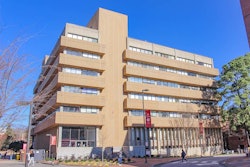NASHVILLE, Tenn. – Lipscomb University is now offering an undergraduate nursing program on its campus and plans a new $8.5 million nursing building to draw more people into a field that continues to have shortages.
Lipscomb financial officer Danny Taylor told The Tennessean that investing in the facilities coincides with growth in the academic programs (https://bit.ly/oq9G7o). The Churches of Christ-affiliated school has seen record enrollment each fall since 2007, and its total number of students has almost doubled. This fall, its enrollment was
4,018.
Roger Davis, who is dean of Lipscomb’s College of Pharmacy and Health Sciences, said the 24,000-square-foot, three-story nursing building will open in July and have classrooms, faculty offices, study space and clinical labs.
There were 95 students enrolled in the Lipscomb’s School of Nursing this fall, but Davis says he expects that number to double over the next couple of years with help from the new building.
A nursing program had been a partnership with Vanderbilt University beginning in 2003, Davis said.
“We had a great partnership with Vanderbilt, but we’ve grown so much that we can stand on our own,” he said. “Students are looking for that individually focused and community service aspect. They want to know that they matter.”
Meanwhile, the pharmacy program has also seen growth. The first doctorate of pharmacy class enrolled in 2008 with 75 students, and now 308 students are enrolled.
Because of the growth, Lipscomb plans to build a $6 million pharmacy research wing by 2013.
The wing will give pharmacy students and faculty a venue for pharmaceutical science research and drug discovery, Davis said.
“We’re confident that the health-care field is going to see great growth, and the edge we have in the market is that these programs are taught in a faith-based setting,” he said. “This is all a part of planned growth we’ve been working on for years.”
Lipscomb is one of 29 institutions in the state that offer a bachelor’s of science in nursing, said Tennessee Department of Health spokeswoman Shelley Walker.
Even so, there continues to be a shortage in nurses and nursing programs both statewide and nationally, said Beth Smith, president of the Tennessee Nurses Association. She said state budget cuts have put nursing programs in jeopardy, so programs at private universities are crucial.
“Lipscomb’s showing up and stepping up by adding more people to the field,” Smith said. “We have to develop nursing faculty, and we also have to increase the numbers of nurses at the bedsides. It’s important to the health of our patients, so this sort of investment can have an impact.”


















